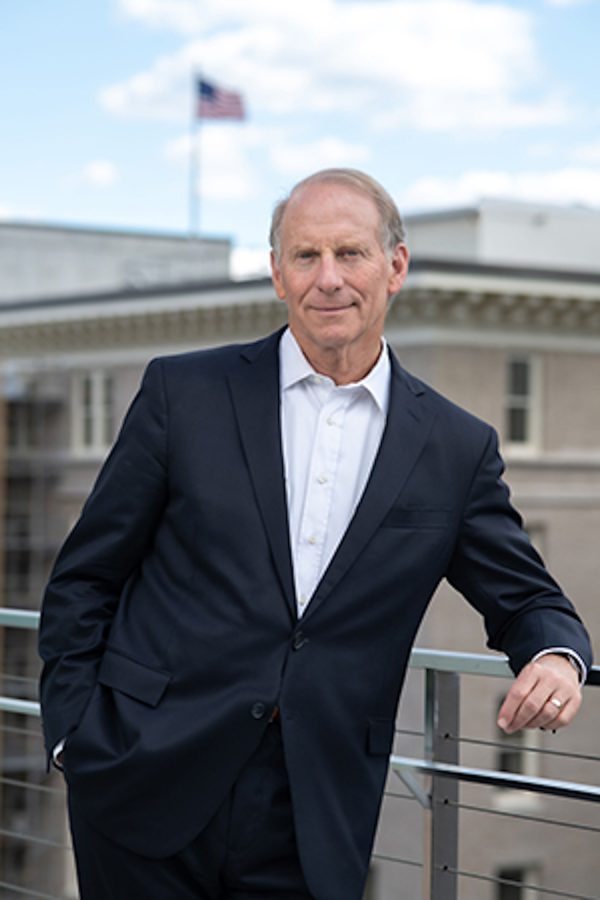Diplomat, foreign policy analyst Richard Haass discusses geopolitics, wars of choice at annual Leopold Lecture
Richard Haass. The foreign policy analyst discussed geopolitics and wars of choice at the 32nd annual Leopold Lecture.
October 20, 2021
Diplomat and foreign policy analyst Richard Haass spoke about geopolitics, political rivals and wars of choice at the 32nd annual Richard W. Leopold Lecture on Monday.
Haass served as the principal advisor to former Secretary of State Colin Powell, who died on Monday. He also worked as the U.S. coordinator for the future of Afghanistan and the special envoy for Northern Ireland. He has also been the president of the Council on Foreign Relations since 2003.
Political science Prof. Karen Alter, who moderated the event, praised Haass’s book “The World: A Brief Introduction,” which describes the historical origins of modern politics.
“If you spend ten minutes a night reading one chapter of this book, within a month you would have a tremendous background in international relations,” Alter said.
Haass opened the lecture by discussing the economic and political dangers of American rivalries with Russia and China. The U.S. should proceed cautiously, remain open to partnerships with China and avoid sparking war, Haass said.
He pivoted to discussing global challenges, including the failure to address climate change, public health concerns and cyberspace regulation. He fears the scale of these issues is larger than the world’s ability to tackle them, as evidenced by the widespread impact of COVID-19.
“We live in a world where the word ‘local’ has lost most of its meaning. What happens ‘out there’ matters here more than ever,” Haass said. “Globalization is not a choice. The only choice is whether and how we respond to it.”
However, Haass said he is hesitant to recommend the U.S. tackle geopolitical issues full-throttle. Instead, he recommends a proper equilibrium between intervention and isolation.
Haass also answered questions about refugees, women’s rights, war and negotiations.
On the subject of negotiations, Haass warned against offering unfeasible compromises. Foreign policy is “the art of the possible,” he said.
He spoke critically about America’s “wars of choice,” including Iraq, Vietnam and Afghanistan.
“The first question is to rethink very hard before undertaking wars of choice where you have other instruments, or where the interests do not rise to the level of vitality,” he said.
Haass said a pacifist stance may not always be the solution. War is sometimes inevitable, as long as the government understands the local politics and culture of the region they plan to attack, he said.
Haass referenced Powell several times and cited his Gulf War doctrine as a valuable resource when determining whether military force needs to be employed.
At the end of the day, he said he hopes students attending the lecture understand how crucial international relations is to a well-rounded education.
“No student should leave this campus without a firm understanding of the world, how it operates and why it matters,” Haass said.
Email: [email protected]
Twitter: @AmouyalMargot
Related Stories:
— Pulitzer winner Anne Applebaum discusses the rise of authoritarianism in annual lecture.
— Anne-Marie Slaughter talks foreign policy at 25th annual Leopold Lecture.
— George McGovern, Northwestern alum and former U.S. senator, dead at 90.


